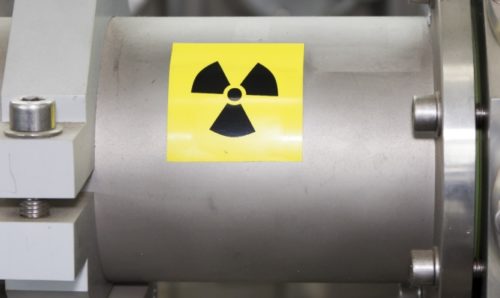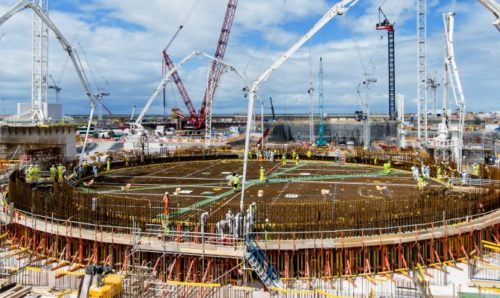Nuclear Power in Fiction
Public engagement 14th April 2016
Nuclear power is emotive, some artists use this to produce some of the most pervasive and fascinating media. Daniel Cooper takes us through, and critiques, some of the media he’s been consuming lately.
Occupied
Occupied (or Okkupert) is a Norwegian TV series which aired recently in the UK on Sky Arts. In the near future, Norway has successfully managed to supply all its energy needs without fossil fuels. Due to effects of climate change it decides to stop oil and gas production, resulting in backlash from the European Union. What’s interesting here is that despite the general media rhetoric switching to renewable energy, in Occupied the Norwegians develop thorium-powered nuclear reactors to supply their energy. I particularly liked that the political party leading this change is a Green Party, promoting nuclear power for what it is, a clean energy source. This is something I believe our own Green Party should adopt, rather than the ideological disdain for nuclear power.
In the program, the Norwegians hope to sell this technology to the rest of the EU, which would help wean them off fossil fuels whilst supposedly supplementing the Norwegian’s lost income from selling oil and gas. Whilst a switch to thorium-powered reactors is likely to be uneconomical in the real world, at least for the time being, it does remind me of how small modular reactors are often portrayed. There is a hope that if we can develop a small modular reactor in the UK, we could sell it to the rest of the world, capitalising on our history of nuclear knowledge to bring income to the UK whilst limiting the global effects of climate change.
Fallout 4
The Fallout series of video games have developed a dystopian future where nuclear power was heavily developed after World War 2. The United States builds numerous fission and fusion reactors, enabling it to create almost unlimited economic wealth. However, as resources become depleted civil unrest develops both within the country and without. This leads to a nuclear war, devastating North America, and we follow our protagonist as he or she travels “the wasteland”.
For me, this raises two key points. One is how do we increase our use of nuclear power whilst simultaneously decreasing the proliferation of nuclear weapons? Unfortunately, it is not a topic I know well so I won’t even try to comment. The other point is that maybe economic growth isn’t always in our best interest. Maybe rather than always taking the cheaper option, such as mining new materials out of the ground, we should seek to take the more expensive route of improving our efficiency and ability to reuse and recycle. In the context of nuclear power, this means running a closed fuel cycle with breeder reactors, rather than an open fuel cycle where we keep mining uranium.
Foundation
Isaac Asimov’s Foundation series is arguably the most famous set of science fiction novels ever written. The first novel was published in 1951, at a time when it seemed certain we would make the permanent switch to nuclear power for our energy needs. Thousands of years into the future a galactic empire has emerged, the capital of which is a planet completely developed as a city sporting upwards of 40 billion citizens. Through the use of psychology and statistics it is predicted that the empire will fall, and a plan is put in place to limit the time needed to rebuild it.
One of the key features in the book is how as the empire collapses, the knowledge and skills of how to run nuclear fission reactors is lost, leading to stagnation and decline as many civilisations return to using fossil fuels. The Foundation, with its extensive scientific knowledge, uses this as both a tool to help rebuild civilisation throughout the galaxy and leverage to prevent attack against them by aiding other worlds. This loss of knowledge reminds me somewhat of the situation we now have in the UK, and the same in the US, where because we haven’t built any nuclear power plants for a few decades, the knowledge and skills of how to build them is having to be redeveloped. The novel highlights how important energy is to our development, and is a reminder that if we’re going to leave this planet to start life on other worlds, we’re likely to need nuclear power.



